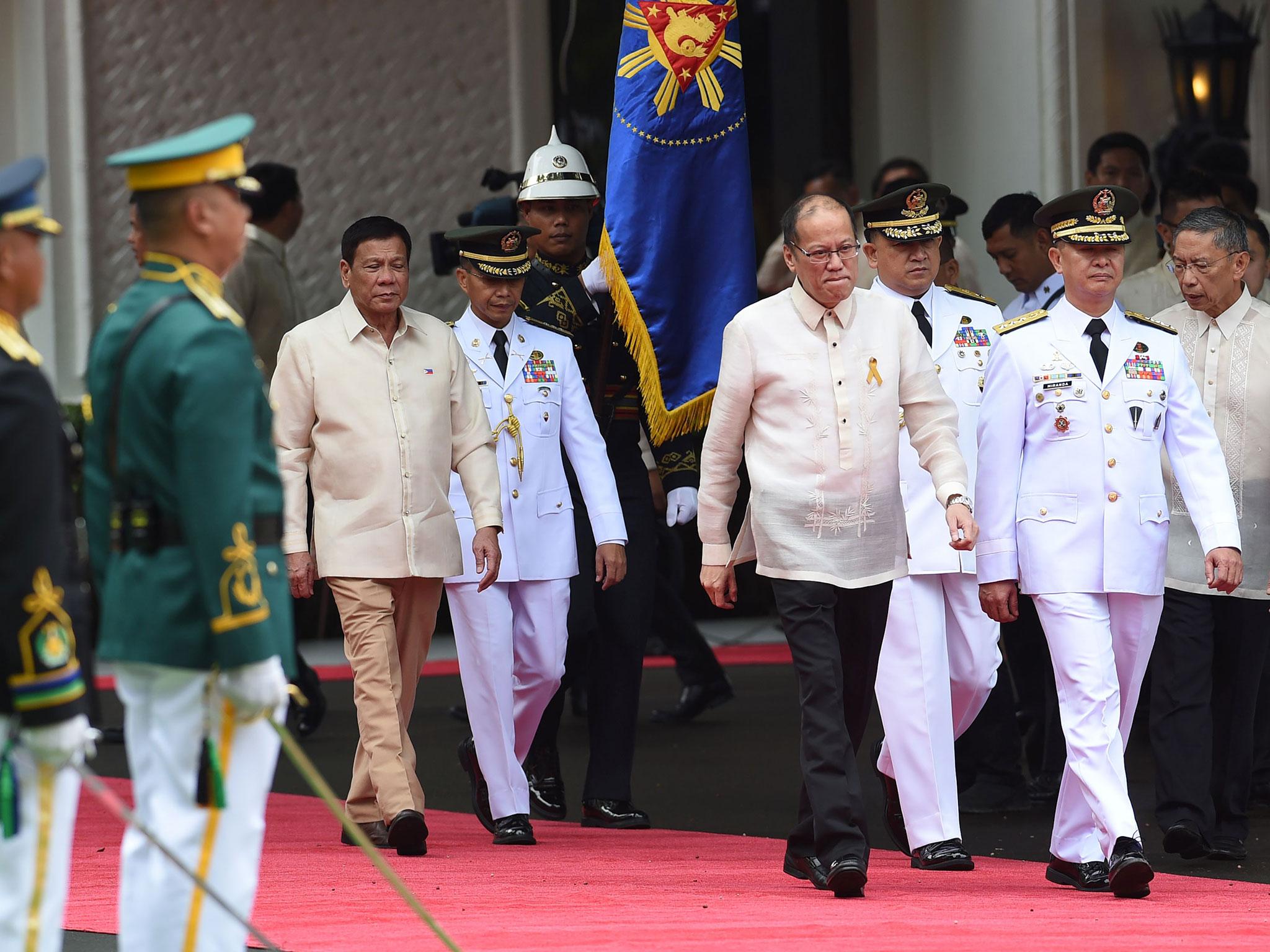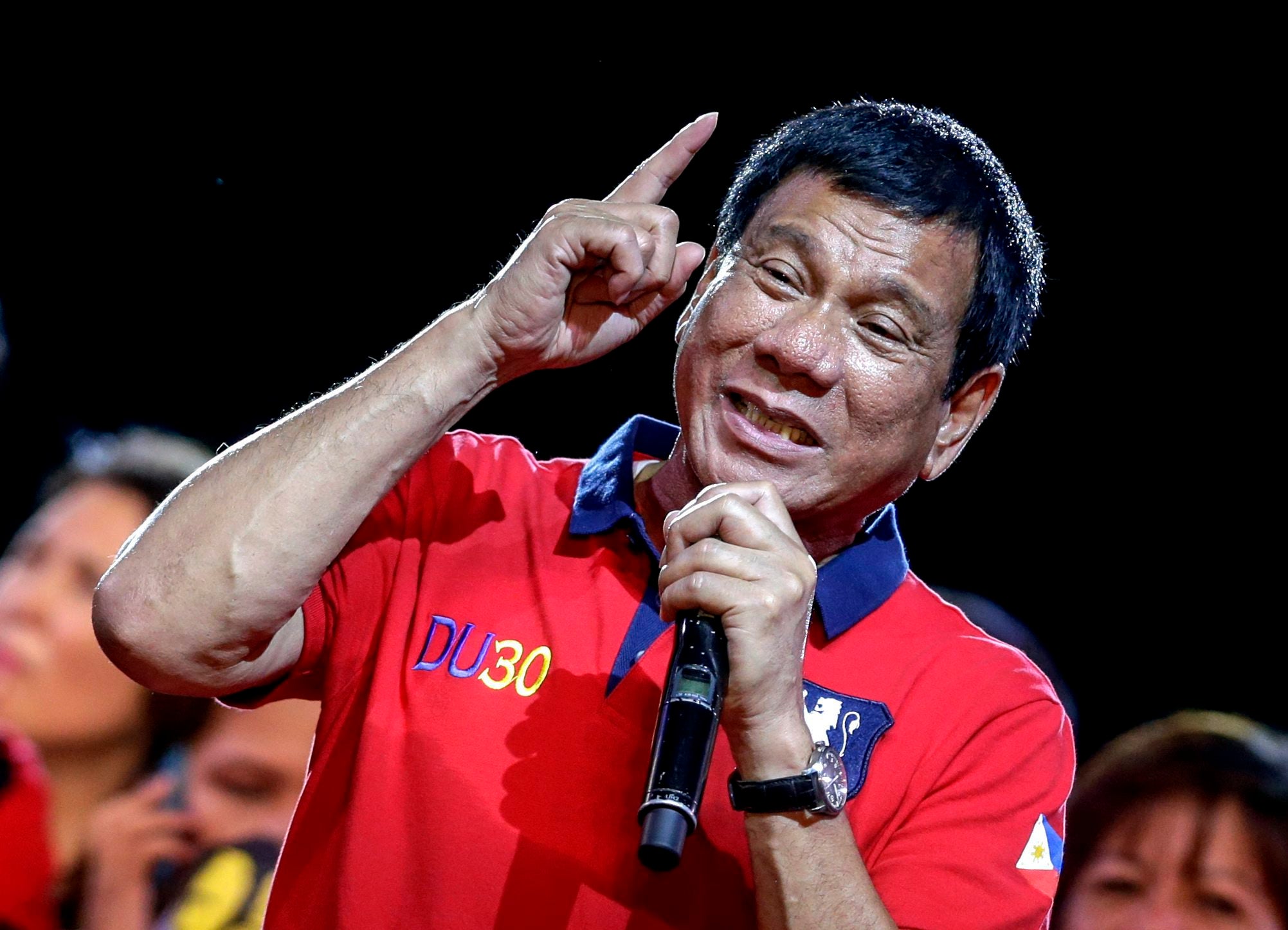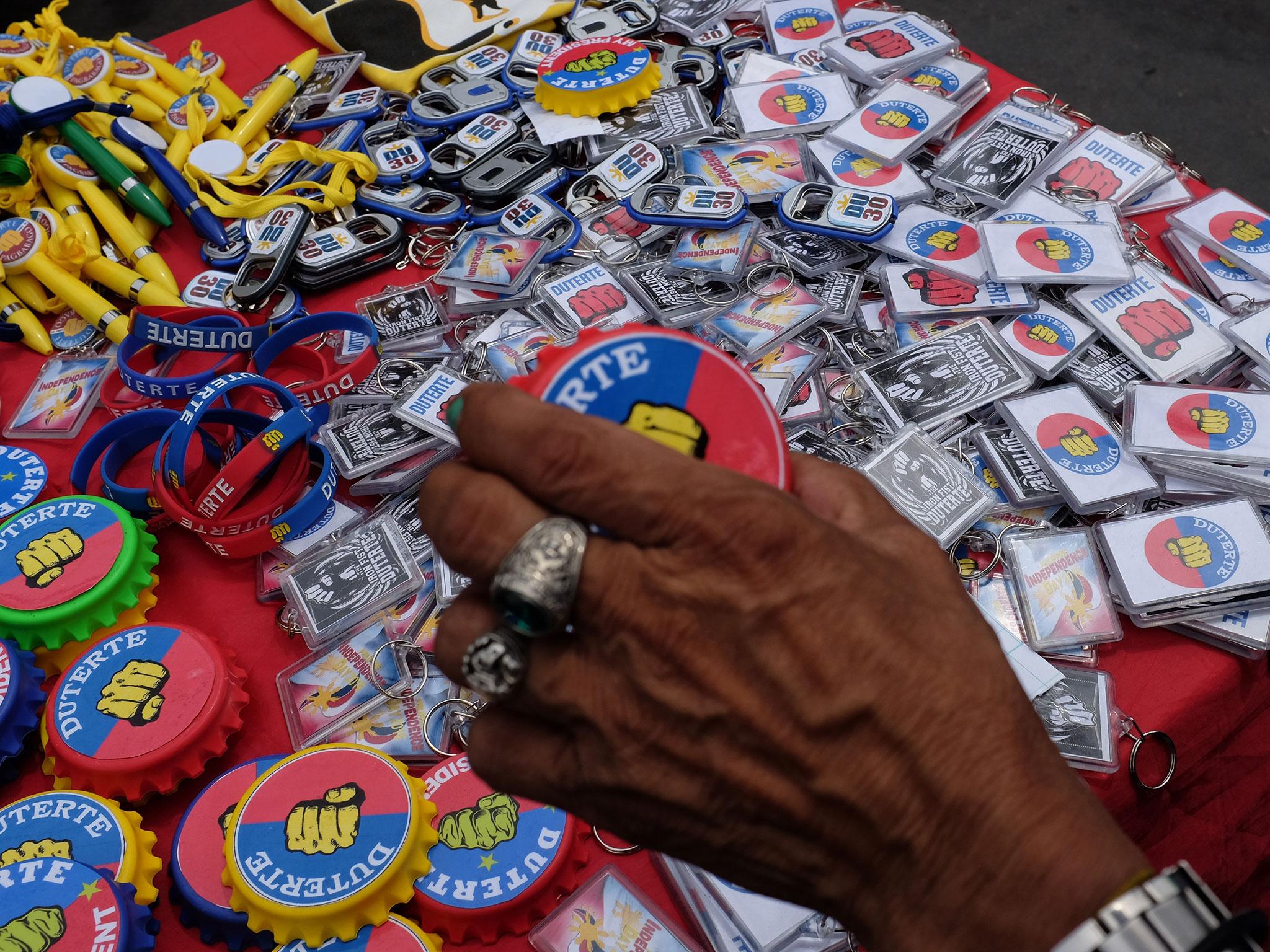Rodrigo Duterte ‘Harry’ sworn in as new President of the Philippines
The 71-year-old former prosecutor's campaign became characterised by profanity-laden speeches, in which he often threatened lawbreakers with death

Your support helps us to tell the story
From reproductive rights to climate change to Big Tech, The Independent is on the ground when the story is developing. Whether it's investigating the financials of Elon Musk's pro-Trump PAC or producing our latest documentary, 'The A Word', which shines a light on the American women fighting for reproductive rights, we know how important it is to parse out the facts from the messaging.
At such a critical moment in US history, we need reporters on the ground. Your donation allows us to keep sending journalists to speak to both sides of the story.
The Independent is trusted by Americans across the entire political spectrum. And unlike many other quality news outlets, we choose not to lock Americans out of our reporting and analysis with paywalls. We believe quality journalism should be available to everyone, paid for by those who can afford it.
Your support makes all the difference.Rodrigo Duterte has been sworn in as the Philippines' 16th president, capping the unlikely journey of a provincial city mayor whose brash man-of-the-people style and pledges to crush crime swamped establishment rivals in last month's election.
After making his pledge at the presidential palace in Manila, with one hand on the Bible, Mr Duterte delivered a speech in which he promised a “relentless” and “sustained” fight against corruption, criminality and illegal drugs. However, he said these ills were only symptoms of a disease cutting into the moral fibre of society.
“I see the erosion of the people's trust in our country's leaders, the erosion of faith in our judicial system, the erosion of confidence in the capacity of our public servants to make the people's lives better, safer and healthier,” he said.
Mr Duterte tapped into voters’ disgust with the Philippines' political elite and the failure of successive governments to tackle poverty and inequality, drawing comparisons with Donald Trump and the rise of assertive populists across the globe.
But his defiance of convention has raised concern that economic growth in the Philippines, the fastest of Southeast Asia's five main economies under his predecessor, could be at risk on his watch.
The political shake-up also adds to uncertainty about Manila's position in a sometimes-bitter dispute with China over sovereignty in the South China Sea, a key global trade route.
China's official Xinhua news agency said President Xi Jinping sent a congratulatory message to Mr Duterte, saying he was “willing to work with Duterte to push for improvement of relations between the two countries”.
Mr Duterte's new defence minister told Reuters this week that crushing Islamist militants in the south of the country would take precedence over South China Sea disputes.
Mr Duterte's election campaign focused almost entirely on the scourges of crime, drug abuse and corruption, and voters were not deterred by repeated warnings from “the Punisher”, in profanity-peppered speeches, to have offenders killed.
In his maiden speech, the president conceded that many believe his methods “are unorthodox and verge on the illegal”. However, the 71-year-old former prosecutor said he knew right from wrong and would abide by the rule of law.
Mr Duterte was mayor for 22 years of the southern city of Davao, where, according to human rights groups, death squads have killed at least 1,400 people since 1998, most of them drug-pushers, addicts, petty criminals and street children.
He denies any involvement in vigilante killings.

In keeping with his unsophisticated manner, the presidential inauguration ceremony was far less elaborate than is customary.
There was a traditional 21-gun salute at Malacanang Palace, a graceful white mansion originally built by Spanish colonialists in the 18th century.
But aides said there was no sumptuous banquet or champagne, just a meal for 627 guests showcasing the country's culinary heritage, including coconut pith spring rolls, a cheese made from carabao milk and durian tartlets.
Mr Duterte is not known for his sartorial elegance: he usually sports a short-sleeved casual shirt, never wears socks and told Reuters on the hustings that he wouldn't be seen in a tie. On Thursday, he wore a formal ‘barong’ shirt but TV presenters commented that he appeared to be wearing slip-on loafers.
Indeed, there is little about Mr Duterte that is conventionally presidential.
Aides say he wants to travel in a pick-up truck instead of the president's bullet-proof Mercedes. And it is still not clear if he will keep a promise to spurn the luxury of the palace and commute daily from Davao, which is two hours from Manila by air.
Few media organisations were invited to the inauguration, the upshot of a furore Mr Duterte unleashed recently when he suggested that corrupt journalists were legitimate targets for assassination.
His incendiary rhetoric and advocacy of extrajudicial killings to stamp out crime have alarmed many who hear echoes of an authoritarian past under the dictator Ferdinand Marcos.
In the weeks since Mr Duterte's election victory there has been a jump in the number of suspected drug dealers shot dead by police and anonymous vigilantes; a sign, critics say, that a spiral of violence has already begun.
But this appears to have only augmented his popularity.
Thousands of people belonging to a left-wing activist group marched to an area near the palace, not to protest as they usually do, but to cheer for Mr Duterte.

“Change is indeed coming,” said Sevilla Sayco, a 61-year-old rice farmer from a province north of the capital.
“We are happy because the previous administration paid us no attention. But Duterte is pro-poor,” she said while shopping for shirts with Mr Duterte's image on them, among piles of other Duterte merchandise from nail clippers to pens and keychains.
Mr Duterte later invited the leftists into the palace and spoke to them about ideas he had to distribute millions of hectares of public land to farmers and release political prisoners.
He has promised to spread wealth more evenly in a country where over a quarter of the 100 million people are poor.
He gave few details of his economic policies, but has said he will pursue his predecessor's infrastructure and fiscal efficiency drives to lift growth to at least 7 per cent.
Reuters
Join our commenting forum
Join thought-provoking conversations, follow other Independent readers and see their replies
Comments